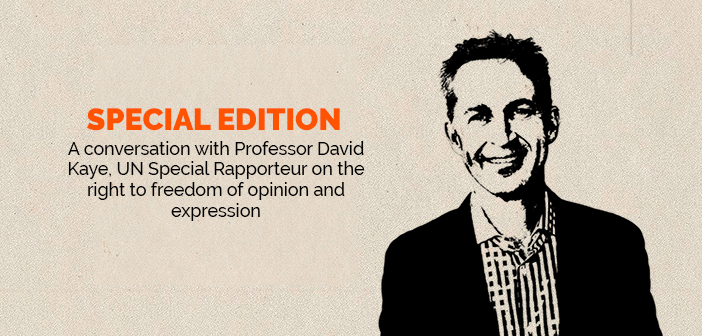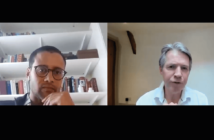In this special edition of Clear And Present Danger we leave the past and jump into the present for a discussion on how international human rights standards are relevant to the burning question of where to draw the limits of free speech online”. With me to discuss this issue is Professor David Kaye, who is the UN Special Rapporteur on the promotion and protection of the right to freedom of opinion and expression, as well as a professor of law at the University of California, Irvine. Professor Kaye is also the author of the recent book “Speech Police”. On Oct. 21, David Kaye presented a report to the UN General Assembly that attempts to provide guidance to both states and tech companies on how to safeguard online free expression while minimizing harms.
The conversation delves into questions such as:
- What is the state of free speech today;
- Why a historical perspective is crucial to understanding current challenges to free expression;
- How to reconcile the “schizophrenic” standards on free expression and hate speech under human rights law;
- How the UN human rights system has developed standards that are more speech protective than the European human rights system;
- Why the so-called digital era has resulted in more rather than fewer restrictions on free speech globally;
- Whether tech companies should base their community standards on human rights principles;
- Whether attempts by European democracies like Germany and France to limit online hate speech creates a risk of “moderation without representation” for users of social media platforms in the US and elsewhere;
- How to assess Mark Zuckerberg´s recent speech on free expression at Georgetown University;
Why have kings, emperors, and governments killed and imprisoned people to shut them up? And why have countless people risked death and imprisonment to express their beliefs? Jacob Mchangama guides you through the history of free speech from the trial of Socrates to the Great Firewall.
You can subscribe and listen to Clear and Present Danger on Apple Podcasts, Google Play, YouTube, TuneIn, and Stitcher, or download episodes directly from SoundCloud.
Stay up to date with Clear and Present Danger on the show’s Facebook and Twitter pages, or visit the podcast’s website at freespeechhistory.com. Email us feedback at freespeechhistory@gmail.com.





